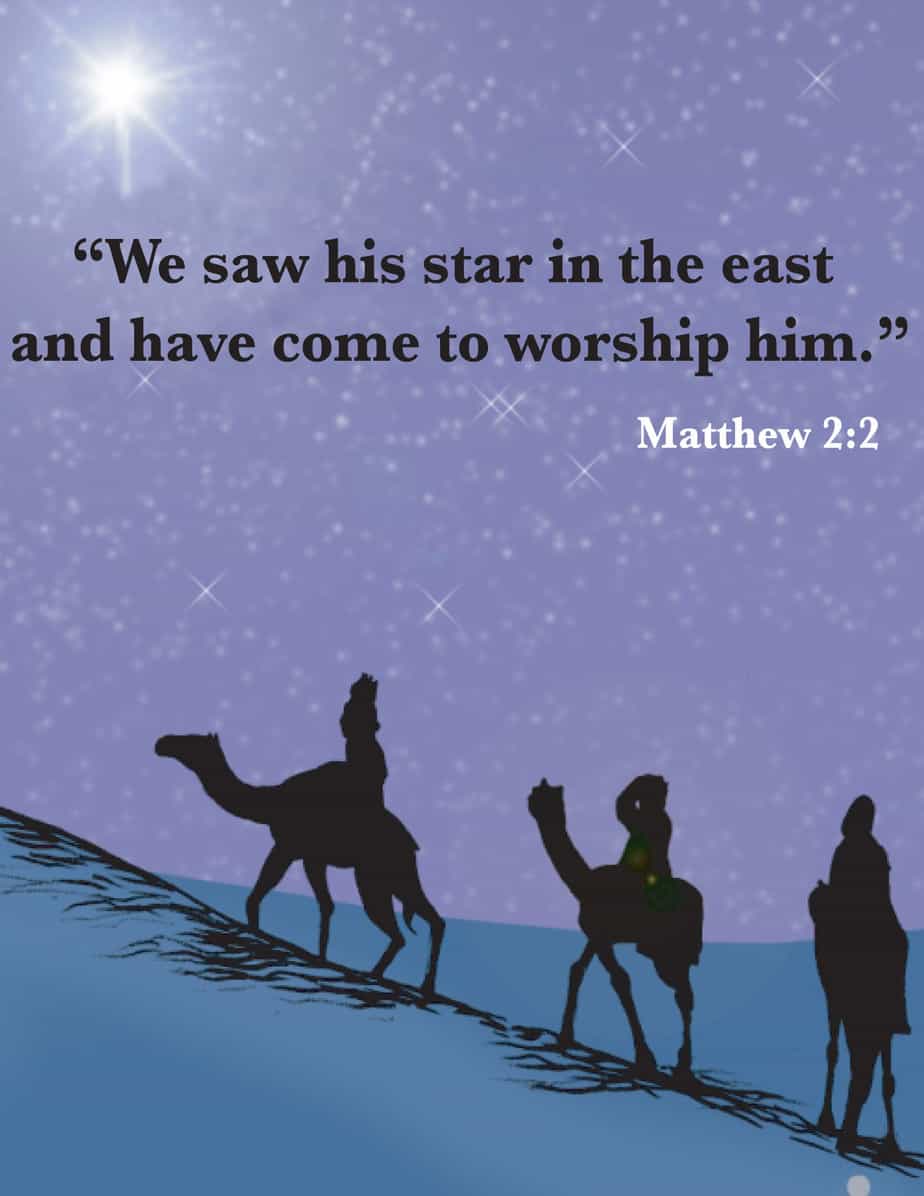Yesterday was the twelfth day of Christmas, and today is The Epiphany, or the Manifestation of
Christ to the Gentiles. Not many people observe the Twelve Days of Christmas anymore, and often when they are addressed—perhaps in a special sale in a department store—usually they are celebrated before Christmas. However, from early days pf Christianity, the twelve days were the days between Christmas Day and Epiphany.
We often see Nativity scenes or pictures of baby Jesus in the manger with the shepherds and the Magi all worshipping Him together. Actually, the Magi or Wise Men didn’t appear until later; they visited Jesus in a house, not a stable.
There are many legends about the Magi. Sometimes they are described as kings, sometimes as Wise Men, sometimes as Magi (which means wise and knowledgeable men who study the stars). Tradition says there were three, but Scripture doesn’t tell us how many there were. Names have been assigned to them by legend, but we have no idea what their real names were. Some theorize that they each came from a different country and couldn’t even speak to each other. There are also opinions on the star the Wise Men followed. Astronomers and others research the history of comets and other phenomena to try to discern if the star in the east coincides with any known cosmic event. And there are many more theories, legends, and myths.
None of this really matters. It may be fun to imagine who the Wise Men were, where they came from, the significance of the gifts they brought, their names, their relationships to each other …. But the Bible doesn’t tell us any of that because we don’t need to know it. The only important details of the story are that men who were not Jews traveled a very long way to worship Jesus.
The Epiphany commemorates the arrival of those Magi, who followed the star to worship baby Jesus. This feast day is also known as The Manifestation of Christ to the Gentiles, because the Magi, who were not Jews, were the first Gentiles to worship Christ, demonstrating that the promises of God are for all mankind. Jews typically expected the Messiah to come to rescue them from oppression. They didn’t expect that the rescue would be not of an enemy army or oppressive leaders but rescue from sin and death—and the promise of eternal life. And the promise wasn’t just to Jewish people or the Jewish nation but to the entire world.

Anyone anywhere can have eternal life if they choose to follow Jesus Christ as their Lord and Savior. God didn’t tell us where the Magi came from; they represent other nations and peoples—you and me. Even if we weren’t born a Jew, we have the same promises from the same Lord as the Jews do.
Epiphany isn’t widely celebrated in churches today. I think it deserves recognition. We should celebrate that these three (or more or less) Magi (or kings or wise men) followed a star to worship baby Jesus. As a result, we see that we Gentiles can have the same salvation as the Jews can. Hallelujah!
O GOD, who by the leading of a star didst manifest thy only-begotten Son to the Gentiles; Mercifully grant that we, who know thee now by faith, may after this life have the fruition of thy glorious Godhead; through the same thy Son Jesus Christ our Lord. Amen.

